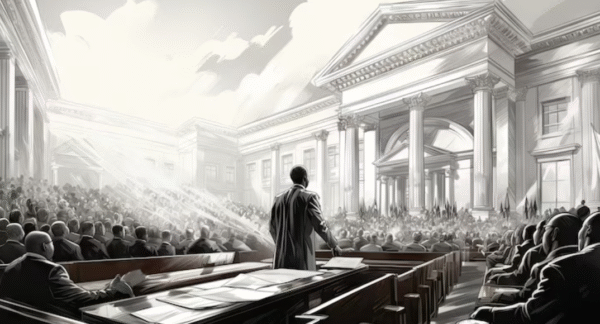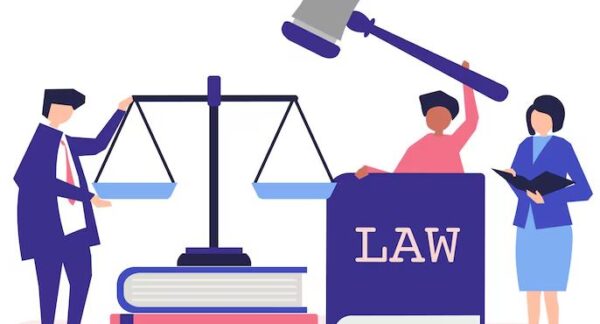Clear Title Can Stand Without Cancelling Another’s Deed, Says Supreme Court


Introduction
In a significant ruling that clarifies the procedural requirements for declaratory suits, the Supreme Court has held that a plaintiff seeking declaration of title to property is not obligated to pray for cancellation of a sale deed executed by another party. The judgment in Hussain Ahmed Choudhury & Ors. v. Habibur Rahman (Dead) Through LRs & Ors. (Civil Appeal No. 5470 of 2025) highlights important guidance on the scope of Sections 31 and 34 of the Specific Relief Act, 1963.
Table of Contents
Case Background
The dispute originated from a registered Gift Deed dated April 26, 1958, executed by Haji Abdul Aziz Choudhury in favour of his grandson, Siraj Uddin Choudhury (the original plaintiff). The gift was made because, under Muslim law, the grandson would not otherwise have been eligible to inherit his grandfather’s property as his father had predeceased his grandfather. The plaintiff in this case are the legal heirs of Siraj Uddin Choudhury.
In 1997, the respondent allegedly purchased part of the suit land from the brothers and sisters of the plaintiff’s deceased father who had no titled or saleable rights over the property. Thereafter, the plaintiff filed a suit seeking declaration of title, confirmation of possession, and mandatory injunction. During the pendency of the suit, the plaintiff was dispossessed of the property, leading to an amendment of the plaint to include recovery of possession.
Both the Trial Court and the First Appellate Court ruled in favour of the plaintiff, and found that the Gift Deed was validly executed and confirmed the appellants’ title over the suit land. However, the High Court, while affirming the validity of the Gift Deed, allowed the appeals of the defendants on the ground that the plaintiff had failed to seek cancellation of the subsequent sale deed as a consequential relief.
Supreme Court’s Approach
The Supreme Court formulated the key question: Whether the High Court was right in taking the view that the plaintiff’s suit for declaration of title based on a valid Gift Deed should fail as the plaintiff omitted to pray for the consequential relief of cancellation of the sale deed?
In addressing this question, the Court conducted a thorough examination of Sections 31 and 34 of the Specific Relief Act, 1963, and made several important clarifications and established legal principles:
- On Section 31 (Cancellation of Instruments)
The Court emphasized that Section 31 applies only to parties to a written instrument or persons claiming through them, not to third parties. The court cited the judgment given in the case of Deccan Paper Mills Company Limited v. Regency Mahavir Properties and Others and explained that the expression “any person” in Section 31 does not include a third party but is restricted to either a party to the written instrument or any person who is bound by such party as the proceedings under this provision are in personam. The Court clarified that the observation in Sk. Golam Lalchand v. Nandu Lal Shaw & Ors. (2024) does not mean that a stranger to an instrument would fall under the scope of “any person” in Section 31. The relief under Section 31 is available only to parties to the instrument or those who can be bound by it.
- On Section 34 (Declaration of Status or Right)
“The Court clarified that “further relief” under the proviso to Section 34 must be a relief flowing directly or necessarily from the declaration sought. If such further relief is remote and not connected with the cause of action, there is no need to claim it, and the proviso to Section 34 will not be a bar.
- Declaration of Title vs. Cancellation of Deed:
The Court clarified that a plaintiff who is not a party to a sale deed can seek a declaration of title without seeking the cancellation of the deed. The declaration of title serves to establish the plaintiff’s rights and can render the sale deed inoperative against the plaintiff.
- Doctrine of Privity and Standing:
Drawing upon the principles laid down in Suhrid Singh v. Randhir Singh, the Court reiterated that a person not party to the document cannot and need not cancel it, they may only seek a declaration that it is not binding on them.
- Precedents Distinguished:
The present case differs fundamentally from Mohd. Noorul Hoda, where the plaintiff had purchased property through a benamidar (nominee) who was party to the partition decree being challenged, making him a person “claiming through or under” a party to that decree. Similarly, in Abdul Rahim, the dispute centred on a gift deed’s validity under Islamic law between parties directly connected to the instrument. The Supreme Court emphasized this distinction, noting that unlike these previous cases where plaintiffs had derivative relationships to the challenged instruments, the plaintiff in the current case was a complete stranger to the subsequent sale deed and therefore not obligated to seek its cancellation under Section 31 of the Specific Relief Act.
Key Holdings
- The Supreme Court upheld the validity of the Gift Deed executed by Haji Abdul Aziz Choudhury in favor of his grandson, Siraj Uddin Choudhury. This finding was consistent with the decisions of the Trial Court and the First Appellate Court.
- A plaintiff who is not a party to a document is not obligated to sue for its cancellation, as such an instrument would neither affect their title nor be binding on them. The declaration of title is as effective as the cancellation of the sale deed, especially when the sale deed is void and non-est.
- The Court cited several precedents, including the Privy Council’s decision in Bijoy Gopal Mukerji v. Krishna Mahishi Debi (1907), which held that “there is, in fact, nothing for the Court either to set aside or cancel as a condition precedent to the right of action” of a person who is not bound by a deed executed by others.
- The Court observed that filing a suit for cancellation of a sale deed and seeking a declaration that a particular document is inoperative against the plaintiff are two distinct suits.
- The plaint must be read as a whole, and reliefs can be granted if evidence and circumstances justify them, even if not directly claimed.
- Courts have inherent powers to shape declarations to afford the relief that justice requires, and Section 34 merely gives statutory recognition to declaratory relief without exhausting all types of such relief.
Conclusion
In allowing the appeal and restoring the decree of the Trial Court as affirmed by the First Appellate Court, the Supreme Court has provided valuable clarity on the scope of declaratory suits and the necessity (or lack thereof) to seek cancellation of instruments executed by third parties. By holding that a plaintiff who is not a party to a sale deed need not seek its cancellation in order to assert their title and possession, the Court has reaffirmed the principle that substantive rights must not be defeated by procedural technicalities. The ruling is particularly significant for property litigation in India, as it streamlines the process for rightful owners to assert their titles without getting entangled in unnecessary procedural requirements. For more details, write to us at: contact@indialaw.in





Leave a Reply
You must be logged in to post a comment.